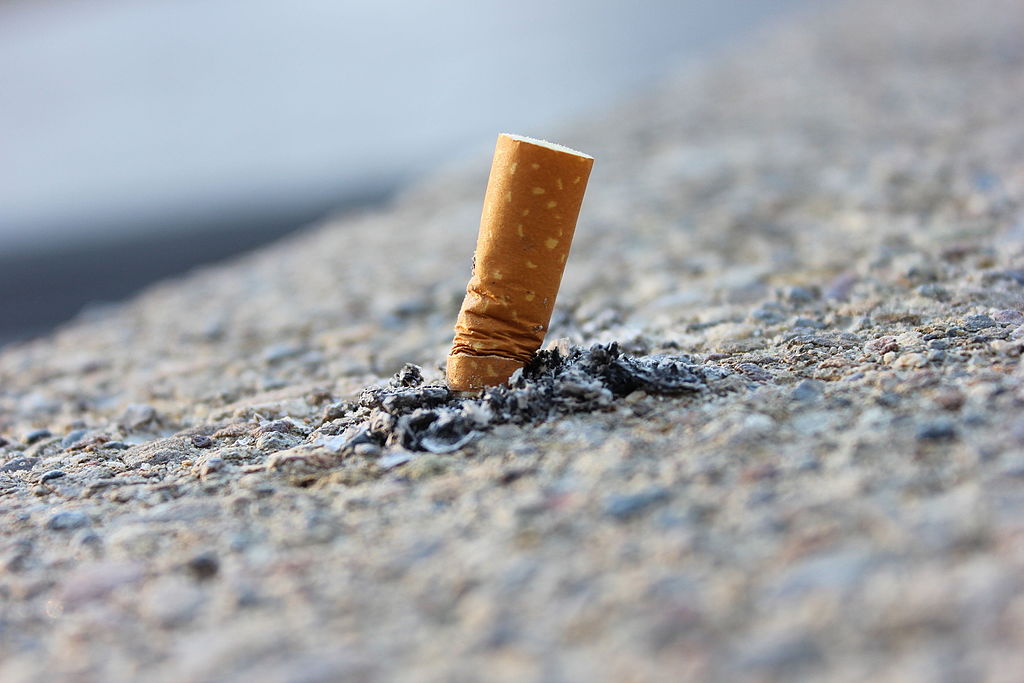Bill Proposed to Cut Toxic Cigarette Waste
Senate Bill 424 Would Ban Filtered Cigarettes

Cigarette butts are the most littered item in the world — about 4.5 trillion are dropped on the ground each year. A new bill introduced by State Senator Hannah-Beth Jackson, Senate Bill 424, is making its way through the state Legislature, seeking to reduce the toxins released to the environment by tobacco waste such as cigarette butts and single-use e-cigarettes. It would also effectively ban traditional cigarettes through its prohibition on the sale of tobacco products that have single-use filters. In other words, anything but a hand-rolled or filterless cigarette would be prohibited from “sale, gift, or other furnishing” in California.
For multi-use tobacco products like e-cigarettes, the bill would implement a take-back program for nonrecyclable components, including cartridges, batteries, and filters. These can contain toxins such as arsenic, lead, and nicotine. Under the bill, tobacco manufacturers would be required to collect these nonrecyclable components and properly dispose of them at a hazardous waste facility.
Cigarette butts constitute about a third of all the trash found on California’s beaches, and Santa Barbara County is no exception. In Isla Vista, the Surfrider Foundation collected 27,187 cigarette butts during the fall and winter quarters of the 2018-2019 school year.
When not properly disposed of, cigarette filters make their way through storm drains into streams, rivers, and the ocean. The toxic chemicals they leach can poison sensitive marine life. In a San Diego State University study, a single cigarette butt in a liter of water killed half of the fish swimming in the solution. Cigarette filters made of plastic not only pollute water sources but also pose a threat to wildlife when mistakenly ingested as food. Plastic filters have been found in the stomachs of fish, birds, and whales, among other marine life.Last week, SB 424 passed the Appropriations Committee by a 4-2 vote and goes next to the Senate floor for a hearing, which should take place within the next two weeks, according to Senator Jackson’s office. If the Senate passes the bill before the end of this month, it will be sent to the Assembly.



